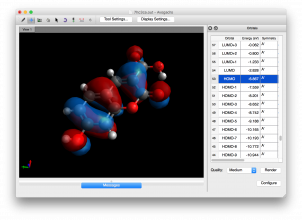Computational Labs for Upper Level Physical Chemistry II

Out of all the upper level chemistry courses, physical chemistry is the only course that provides an in-depth insight into the fundamental principles underpinning the concepts taught in various sub-disciplines of chemistry. Further, physical chemistry provides a connection between microscopic and macroscopic worlds of chemistry through mathematical models and experimental methods to test the validity of those models. Therefore, computational techniques are a perfect vehicle to teach content of physical chemistry course to undergraduate students. Additionally, American Chemical Society recommends computational chemistry to be incorporated into undergraduate chemistry curriculum. At Bridgewater State University (BSU) physical chemistry is a two-semester course referred to as ‘physical chemistry I’ and ‘physical chemistry II’. While the overarching goal is to develop computational experiments (referred to as ‘dry-labs’), project proposed here focuses on designing and developing dry labs for ‘Physical Chemistry II’ course at BSU. The inherently theoretical nature of this course along with its connection to wide range of spectroscopic techniques commonly used by chemists and physicists makes this course a perfect choice for assessing BSU students’ reception to the idea of dry labs. It should be noted that there are no computational experiments in the current physical chemistry curriculum (both I and II) at BSU. The proposed project focuses on developing 4 - 6 computational experiments to be introduced (in spring 2018) as either stand-alone dry-lab experiments or accompany currently existing experiments. These dry labs will be developed on Gaussian 09 platform, which is currently installed on C3DDB server at MGHPCC. Finally, I also expect to make these experiments available to other New England instructors teaching physical chemistry II or equivalent course interested in incorporating computational chemistry into their curriculum.
